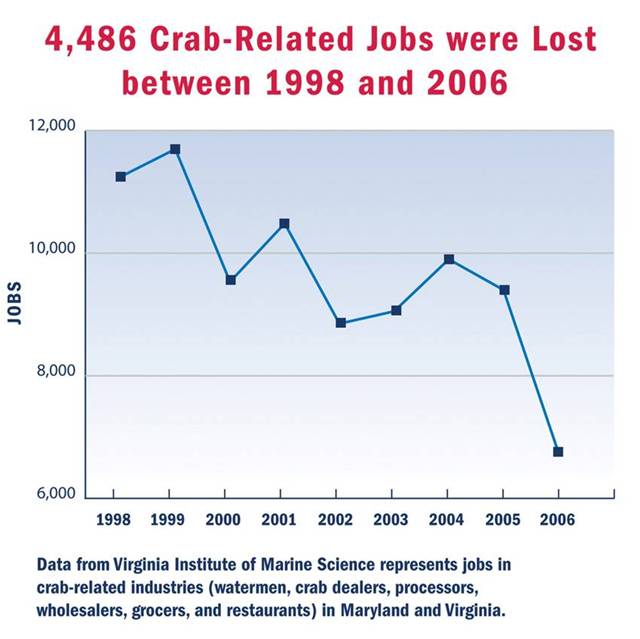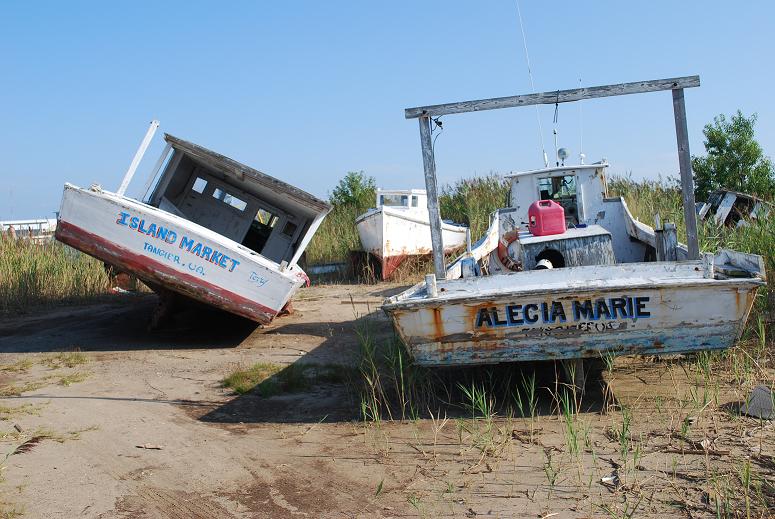Current Situation
The declining health of the Bay and extreme reduction of fisheries affect watermen most directly. Without the ability to make a living, watermen regard themselves as a "dying breed"- many must abandon their boats and find work on shore to make ends meet, and sons are not inheriting their fathers work. Their inability to make a living reflects the economic impacts of an unhealthy Chesapeake Bay.
Unlike the Animal and Crop Farmers, watermen are not a "point source" for nutrient runoff to the Bay, and their effect on Bay health is debatable. It is difficult to say if overharvesting has occurred, and if so, to what extent and cost to the Bay.
Good water quality and adequate habitat are necessary for crab growth and reproduction. Crabs rely on submerged aquatic vegetation or seagrass as a nursery habitat and shelter during molting. To protect the blue crab population, harvest restrictions are defined annually.
Economic Impact
Jobs in crab-related industries dropped from over 11,000 in 1998 to under 7,000 in 2006; a drastic drop in a short period of time. Economic losses amounted to over $640 million.

image: Chesapeake Bay Foundation, Ann Jennings personal communication, 2010
For a comprehensive report on the economic impacts of an unhealthy bay, the Chesapeake Bay Foundation Report "The Economic Argument for Cleaning up the Bay and Its Rivers", November 2010. The report makes an economic case for cleaning up the bay.
A Waterman's Reality
"Ten or 15 years ago these boats were commercially viable. But it got too hard for people to make a living…and people couldn't sell them, because there is no value to these boats anymore." –Lonnie Moore, former waterman on Tangier Island. 2009

Photo: "Boat Graveyard" on Tangier Island, from the Bay Daily, Chesapeake Bay Foundation
